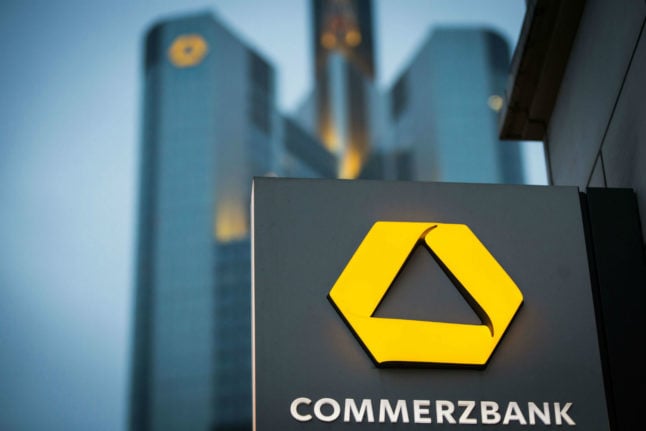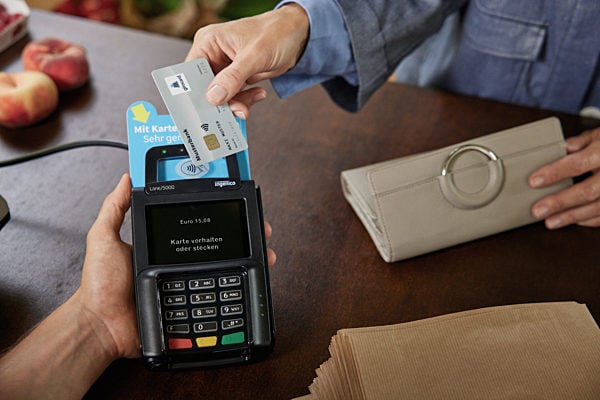The cuts will affect one in three jobs in Germany, the Frankfurt-based lender said in a statement.
“As part of a wide-ranging digitalisation, the bank will substantially reduce its branch network from the current level of 790 to 450,” it said.
“Compared to the figures expected for 2020, costs will be reduced by €1.4 billion or around 20 percent by 2024.”
Like its crosstown rival Deutsche Bank, Commerzbank had already announced thousands of job cuts as it struggles to adapt to a reduced need for bricks-and-mortar branches.
The troubled lender had already announced 2,900 job losses over the course of 2020 and said in December it was booking €610 million in additional provisions to finance the cuts.
It was not clear whether these job cuts were included in Thursday's figure.
The lender posted a €69 million net loss in the third quarter of 2020, during which it closed 200 branches.
READ ALSO: Germany's Commerzbank to slash 4,300 jobs
At the end of September, it had 39,600 employees.
Commerzbank said it would likely end the year with a net loss for the first time since 2009.
The task of getting the bank back on track will fall to its new boss from the start of 2021, Manfred Knof, a defector from Deutsche Bank.
The proposed cuts will be discussed at a supervisory board meeting in February, it said.
Commerzbank “intends to focus and digitalise its business model, considerably reduce costs in all areas, and significantly increase its profitability by 2024,” it said.



 Please whitelist us to continue reading.
Please whitelist us to continue reading.
German Banking believe it or not is decades behind in terms of digitalization compared to banks in India